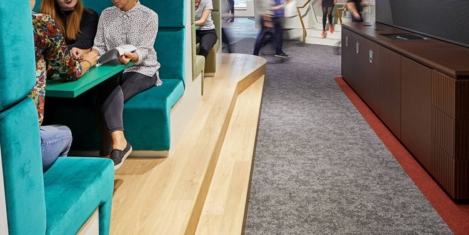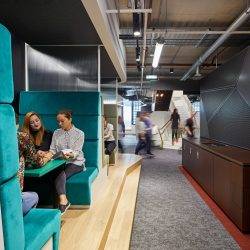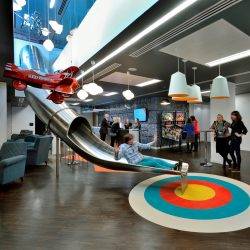February 10, 2019
Insight weekly for 8 February 2019 is available to view online
 If you don’t already subscribe to our weekly newsletter (signup on the right and you’ll only ever get the newsletter, nothing else), you can still read it online here. This week: Rob Harris wonders whether one of the solutions to the most common forms of misinformation and misperception about the workplace might be to break with traditional wisdom and shoot the messengers; Jonathan Hindle calls for an end to the incessant bickering about open plan and enclosed offices as if it were a zero sum game and suggests we should focus more on finding the Goldilocks point offered by agile workspaces; our weekly round-up of the best stories online considers the permanent beta of the office, encouraging certain types of behaviour and the problem of belligerent job interviews; and Amy Laviers points out that, while robots might be able to impress us with their ability to do backflips, they still can’t pick up a paperclip or fold a piece of paper.
If you don’t already subscribe to our weekly newsletter (signup on the right and you’ll only ever get the newsletter, nothing else), you can still read it online here. This week: Rob Harris wonders whether one of the solutions to the most common forms of misinformation and misperception about the workplace might be to break with traditional wisdom and shoot the messengers; Jonathan Hindle calls for an end to the incessant bickering about open plan and enclosed offices as if it were a zero sum game and suggests we should focus more on finding the Goldilocks point offered by agile workspaces; our weekly round-up of the best stories online considers the permanent beta of the office, encouraging certain types of behaviour and the problem of belligerent job interviews; and Amy Laviers points out that, while robots might be able to impress us with their ability to do backflips, they still can’t pick up a paperclip or fold a piece of paper.



































January 25, 2019
The state of the workplace right now? Everywhere and nowhere, baby 0
by Paul Carder • Comment, Facilities management, Features, Premium Content, Property, Workplace design
More →